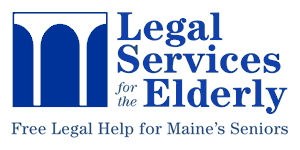Medical Debt
This section will talk about medical debt and what to do if you are being sued on your medical debt.
If you have medical debt and believe Medicare or MaineCare should have paid these claims, please call the Legal Services for Maine Elders Helpline at 1-800-750-5353. Legal Services for Maine Elders may be able to advise you on submitting a medical claim to Medicare or MaineCare or help you appeal a denial of a claim.
- Getting your medical debt covered by Free Hospital Care
Under Maine law, each hospital in the state must adopt a free care policy. This free care policy is also known as “charity care” or “uncompensated care.” Your unpaid hospital debt could be paid for by free care if you qualify for this assistance.
Unpaid hospital bills may be sent to a debt collector from the hospital for collection. If the debt collector is notified (either verbally, or in writing) by either the hospital, or the person owing the debt (“debtor”), that the debtor qualifies or potentially qualifies for free care, the debt collector may not collect or attempt to collect the outstanding debt from the debtor who qualifies for free care. This rule also applies if the debt collector is notified that the debtor would have qualified for free care, but did not apply for good cause.
If the notification is provided to the debt collector, the debt collector must stop all collection efforts until the hospital has notified the debt collector and the debtor that the debtor doesn’t qualify for free care, and then the debt collector may again attempt to collect the unpaid hospital debt.
To find out if your unpaid hospital debt can be covered by free care, contact the hospital that provided the medical services directly or call Legal Services for Maine Elders at 1-800-750-5353.
- What to do if you are being sued on your medical debt
This Guide will give you an idea of what will happen if you are sued for your medical debt. It provides a brief description of the steps a debtor will face in a typical debt collection case in a Maine court. It covers only debt collection actions for unsecured debt, such as credit card and medical debt.
Click here to get the "Guide to Debt Collection Actions in Maine Courts", or find the Guide in the Quicklinks menu to the left.
If you are being sued on a debt or if you have any questions about a debt, call the Legal Services for Maine Elders Helpline at 1-800-750-5353 to talk to an attorney for free.
- Money that is protected from being used for debt repayment
If you are sued on a debt, there are laws that say as to what can, or cannot be used to pay your debt. Certain income sources and certain equity in property are protected from collection. You need to talk to an attorney to find out if you are protected by these laws. Call the Legal Services for Maine Elders Helpline at 1-800-750-5353 to talk to an attorney for free.
- Tax Issues- 1099-C Form
Form 1099-C is a tax document for the Cancellation of Debt.
If your creditor agrees to cancel or forgive some or all of your debt, the U.S. Internal Revenue Service considers this income. Creditors and debt collectors who agree to accept at least $600 less than the original balance are required to file 1099-C forms with the IRS and to send you a notice of this filing. You must report that portion of forgiven debt as "income" on your federal income tax returns.
If you have received a 1099-C “Cancellation of Debt,” do not ignore it. Take the notice to a tax advisor. Even if you don’t have to pay the tax, you still need to file a form with the IRS.
- Resources
Legal Services for Maine Elders
If you are a Maine resident who is 60 or older and you are having a hard time managing your medical debt, call the Legal Services for Maine Elders Helpline at 1-800-750-5353 to speak to an attorney for free.Federal Trade Commission
The FTC is a government agency that protects American consumers. For more information about your rights with regard to debt collection, visit the FTC’s website by clicking here.
